#south african history
Photo
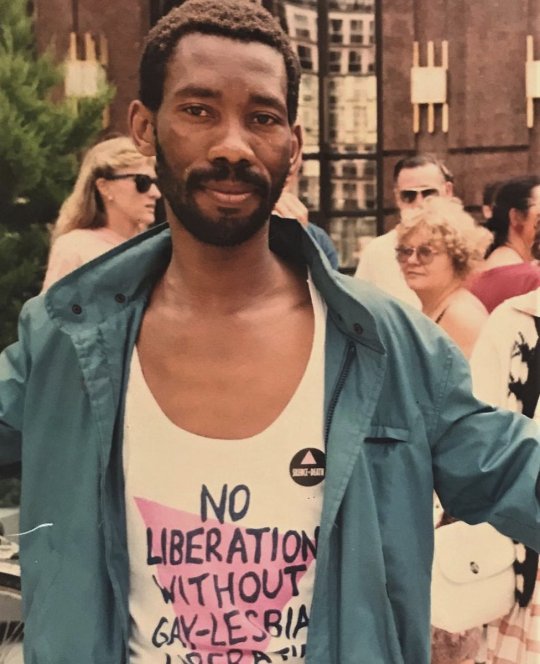
Black History Month: Simon Nkoli
“I am black, and I am gay. I cannot separate the two parts of me into secondary and primary struggle. They will all be one struggle.”
Simon Nkoli was born in the late 1950s in the Black township of Soweto in South Africa. He grew up under apartheid, and first became involved with anti-apartheid activism as a student, despite negative reactions within the movement to his homosexuality.
In 1984, Simon was arrested along with 21 other men while protesting rent increases in the township of Delmas, a group which became known as the Delmas 22. While in prison awaiting trial, Simon was outed, and faced backlash from the rest of the group, many who feared that pulic knowledge of his sexuality would negatively impact the outcome of the trial. To the surprise of his co-accused, Simon received an outpouring of support from the international queer community, which in turn led to greater international support for the Delmas 22 and anti-apartheid work.
Simon was ultimately acquitted, and began work as a founding member of a new group, GLOW - the Gay and Lesbian Organisation of Witwatersrand - fighting for the rights of queer people in Johannesburg’s Black townships. Simon was diagnosed with HIV while in prison, and focussed especially on HIV/AIDS activism in Black communities. With GLOW, Simon went on to organise Johannesburg’s first Pride march in 1990.
In 1994, Nelson Mandela became South Africa’s president, marking the end of apartheid. Simon met and negotiated with government officials to ensure the rights of gay and lesbian people would be enshrined in the country’s new constitution - the first country in the world to do so.
Learn more
Image: Simon wearing a shirt with a pink triangle which reads “No liberation without gay-lesbian liberation”, and a pin reading “Silence=Death”
#simon nkoli#black history#south african history#african history#queer history#aids#gay history#lgbt history#lgbtq#pride#black history month
2K notes
·
View notes
Text
On This Day In History
November 18th, 1993: South Africa approves a new constitution expanding voting rights and ending white minority rule. The first multiracial South African general elections were held in April 1994.
206 notes
·
View notes
Text
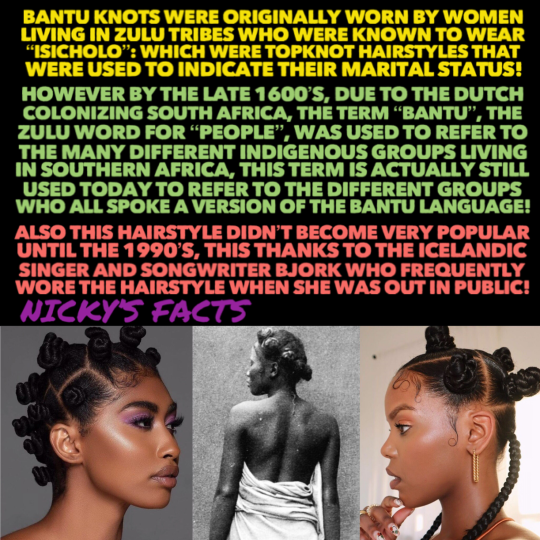
I love how Bantu Knots are not only a beautiful hairstyle, but also has had so many different meanings behind it!
💜🇿🇦
#history#bantu knots#hairstyle#zulu#south africa#pre colonial africa#womens history#black hairstyles#bantu#femininity#isicholo#african women#black girl magic#south african history#language#black coquette#black femininity#soft girl#girly things#zulu history#african femininity#hair#bjork#african history#feminine#coquette#feminine history#african culture#historical hairstyles#nickys facts
128 notes
·
View notes
Text
"We know too well that our freedom is incomplete without the freedom of the Palestinians."
— Late president Nelson Mandela; International Day of Solidarity with the Palestinian People, 1997
"My grandfather, Nelson Rolihlahla Mandela, would have turned 100 this year. The world is marking the centenary of his birth and celebrating his leadership in the struggle to end apartheid in South Africa. But while my country has long been free from racist minority rule, the world is not yet free of the crime of apartheid.
Like Madiba and Desmond Tutu before me, I see the eerie similarities between Israel’s racial laws and policies towards Palestinians, and the architecture of apartheid in South Africa. We South Africans know apartheid when we see it. In fact, many recognise that, in some respects, Israel’s regime of oppression is even worse."
— Nkosi Zwelivelile Mandela, grandson of Nelson Mandela, 2018
#nelson mandela#south african history#palestinian history#palestine#we stand with palestine#palestine will be free#from the river to the sea palestine will be free#south africa stands with palestine
13 notes
·
View notes
Text
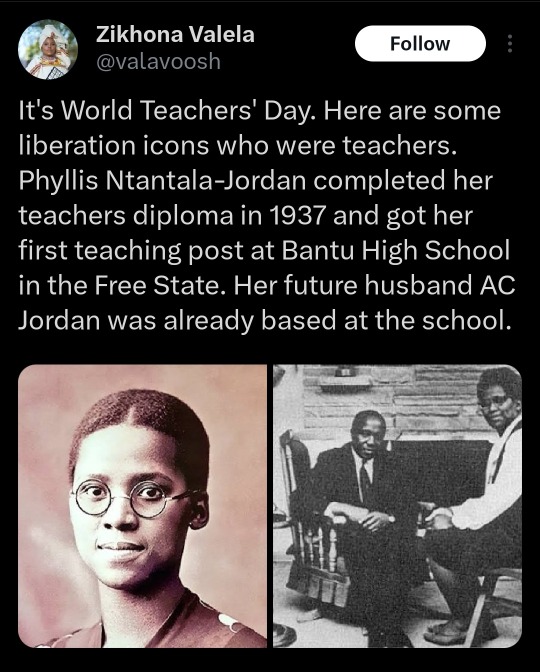


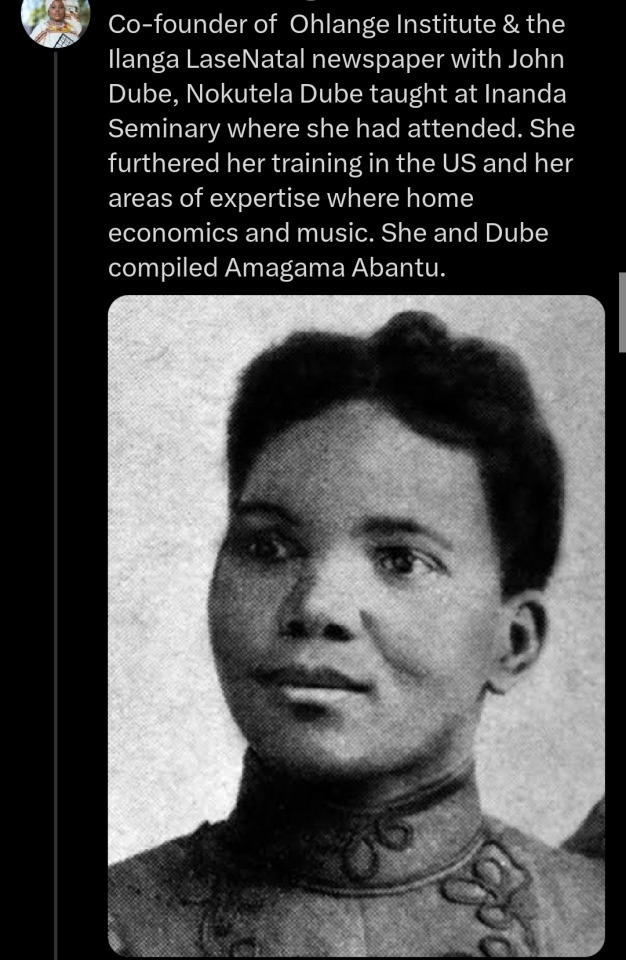


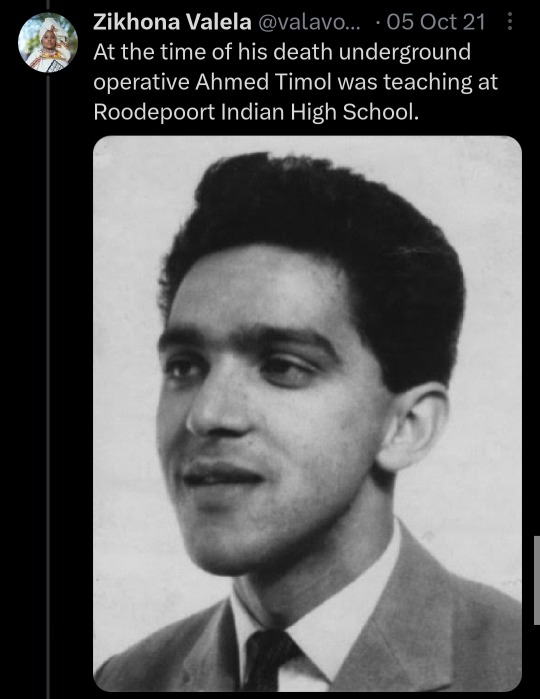
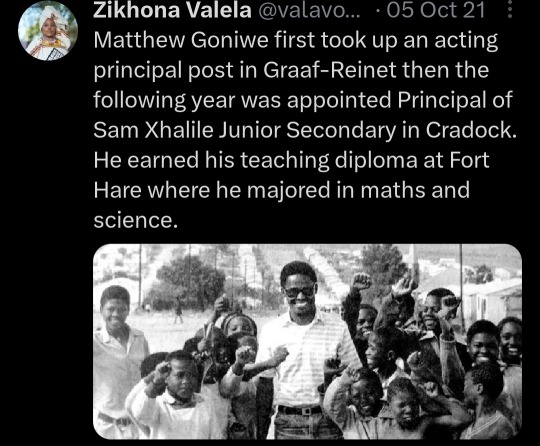
A little history in my twitter dump
#world teachers day#African history#black history#black people#african people#black teachers#Phyllis Ntantala-Jordan#Onkgopotse Tiro#Benedict wallet vilakazi#Nokutela Dube#Robert Sobukwe#Ahmed timol#Ashby Peter Solomzi Mda#AP Mda#Mathew Goniwe#South african history#tumblr dump#Twitter dump
15 notes
·
View notes
Text
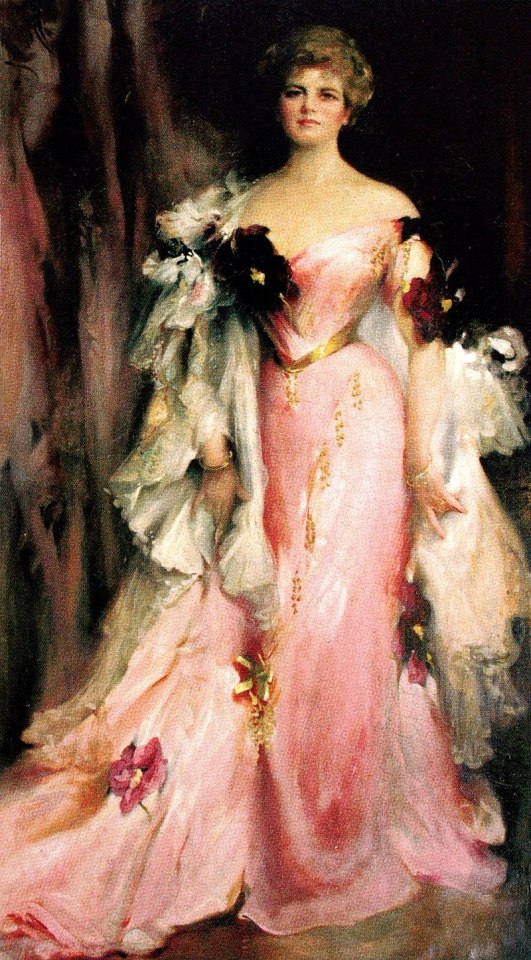
~ Henry William Lowe (Hal) Hurst, "Josephine Dale Lace"
Josephine Lace (known as José) was a glamorous Johannesburg socialite, often seen around town in a carriage drawn by zebras. She was supposedly a mistress to King Edward VII, as well as other several influential British noblemen. She pursued an acting career, but eventually gave it up for matrimony -- or rather matrimonies. She was married twice to John Dale Lace, a South African gold and diamond magnate who adopted her son Lancelot from a previous relationship. As if her life couldn't get more colourful, José also survived being shipwrecked at Galway Castle. She died in 1937.
art cr: wikimedia commons
info cr: wikipedia, theheritageportal
#i love ridiculously rich gilded age ladies#they're just like#might fuck around and buy some zebras for my carriage#why not#hal hurst#fashion history#historical fashion#art#fine art#art history#painting#paintings#portrait#portraiture#portrait painting#antique portrait#turn of the century#english art#english artist#south african history#commonwealth history#historical figure#victorian era#edwardian era
11 notes
·
View notes
Text
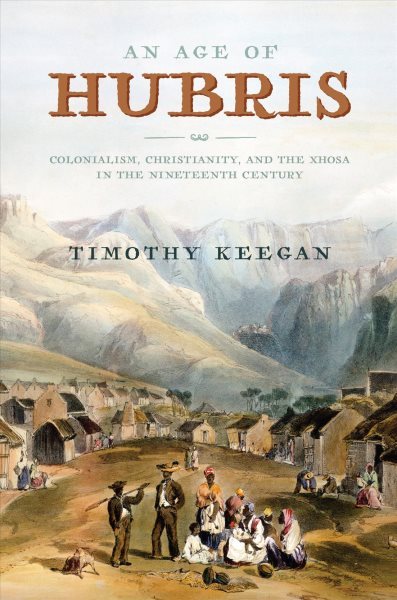
"Timothy Keegan’s book offers a comprehensive assessment of the dynamic interactionsbetween the Xhosa chiefdoms and the European colonial and missionary enterprise during the first half of the nineteenth century. It explores more fully the Xhosa side of this complex history—how they encountered, rejected, or inculturated Christianity in the rapidly changing world created by European colonial and capitalist expansion. Minutely researched and written in highly accessible prose, the book is a welcome addition to the historiography of South Africa’s coastal belt and should be read eagerly by specialists and non-specialists alike."
8 notes
·
View notes
Text

Jonathan the tortoise
St. Helena, South Africa, c. 1900
rayeshistory.com
2 notes
·
View notes
Text
happy youth day '22. we'll never forget what happened 46 years ago on the fateful day - june 16th 1976.
#soweto#soweto uprising#soweto 1976#apartheid#south africa#south african history#police brutality#racisim#youth day#youth day south africa
12 notes
·
View notes
Text
REMINDING THE ANCESTORS

View On WordPress
#A Luta Continua#ANC#Apartheid#Cyril Ramaphosa#Iziko#Slave Lodge#South Africa#South African Democracy#South African Government#South African History
2 notes
·
View notes
Text
A South African's Review of the Forgiven (2017)
This was rough.
[Spoiler Alert]
My credentials?
So, I'm a South African born and raised, I have lived and breathed South African culture for twenty-one years. I did five years of History in High School, I got a distinction (80% or above) for History on my final matric marks... I am also currently studying Linguistics in college, which is at the time of writing this a year and a half of studying.
Right, so those are the reasons I give for being an expert on South Africa.
Let me begin this review by saying, obviously I'm not a film critic, and I'm not really an expert on South African history, I am writing this review from the point of view of an actual South African who has been involved in and submerged in South African culture for 21 years.
Let's Begin
Let's start with the premise of this film. The Truth and Reconciliation Commission. I had to study this in detail in high school and write several essays on it in which I received high marks. We went in depth with learning about the TRC and so, I know that there are several cases that the TRC investigated and brought forward for amnesty that were high profile and involved hit squad members. So, my first question is: why make up this fictious Piet Blomfeld character and storyline? Was the truth not good enough? Is that not what the TRC exactly there for? The truth? It's in the name...
Directors and Writers
So, the director Roland Joffé is also one of the writers (the other being Michael Ashton), he is British. That's all I'm going to say. They are not South African. They are British, and if you remember any African history lesson then you'll remember the literal and very bloody war that the British and Dutch waged for the right to become the overlords of the native people.
Character Analysis:
Archbishop Desmond Mpilo Tutu
I have watched Archbishop Desmond Mpilo Tutu since I was a toddler on TV, watched his speeches, his appearances for charity, watched him dance and laugh and be a real good person with people in need.
I was not very impressed with the portrayal of the Archbishop, now I wasn't his best friend, I didn't know him personally but I, like many many South Africans, felt very close to him because he was a man of the people in every way, that's why President Nelson Mandela asked him to be the chairperson for the TRC.
Now, I like Forest Whitaker as an actor, but I think he was mislead by the directors and writers. Firstly, the Archbishop's hairline was farther back (that's a very easy thing to get right), he stuttered a lot more than in the film and his voice was higher with a more apparent accent.
At one point Whitaker mispronounces the click in Xhosa, now I'm not a fluent Xhosa or Zulu speaker. However, I did learn Xhosa up until grade 8 and I learnt how to pronounce the clicks and basic words and phrases. I know very little Xhosa now, but I hear it almost on a daily basis, and I can distinguish between the clicks as there is a range. I'm also learning about it for linguistics in some detail.
Oh and I've never heard anyone call Tutu 'Bish'. He was pretty relaxed but I think any South African would find that slightly offensive as he was a high respected and almost familial figure in our culture and heritage.
Later in the movie Whitaker does speak Xhosa fairly well which confuses me as to why he couldn't pronounce it earlier. But, we'll get onto linguistics later.
Piet Blomfeld
This is a fictional character, and I ask myself why? There were several high priority former police members that sought amnesty from the TRC. Instead we are given Piet, who is clearly still deeply racist and prejudiced against any person of colour and believes there will be a civil war between white and black people for the soul and rule of the nation. He wants no amnesty, and doesn't believe in the TRC nor in Tutu himself.
I ended up counting 19 k-words (I will not be writing that word out because it is extremely offensive and deeply ingrained in the racism of apartheid, I don't even hear people using this word anymore except in movies of the past) these were entirely unnecessary at many times and just used for shock value. I understand that it shows how racist the character is, but there are far more sophisticated ways of showing that, not with these ham-fisted monologues quoting Milton from Paradise Lost as if that is the end all be all of intelligence.
There is no reason Tutu, in this film, would be interested in this man and his racist nonsense. There is nothing special about quoting Milton and his ramblings of a civil war would barely occupy a half percentage of my thoughts let alone drive me to go visit the idiot in Pollsmoor.
So, this character is shown to be sympathetic (if not empathetic) towards a village of black folks, becoming best friends with a black girl. However, he goes from this to a hit squad member who murders two children, stringing a girl up naked while on her period and then shooting her head off and then burning her and her boyfriend's bodies while having a braai (barbeque) some meters away. How then should I feel sympathy for this character? Because his bigoted racist abusive father broke his arm and gunned down the family of black people Young Piet was friends with?
How did he go from sympathiser to an assassin that not only killed for political reasons but enjoyed killing black people and went out of his way to do so? That is never really explained, nor why we should care about his childhood. It reminds me of a Wattpad story where the bad boy is excused for being a dick because his dad hit him as a child. He also says to the Archbishop "once a slave, always a slave"... no this man does not want redemption.
He also seems to 'adopt' a 17 year old boy (Benjamin) in the prison that is deemed weak by the 28 gang, and is in turn called the leader's wife. However, when a failed assassination attempt on Piet's life ends with him adopting the boy who attempted it and tries to save him from his fate in the gang by 'speaking for him' now why would he do this? He has only ever (since being in prison) shown disgust for any person of colour and the only thing that would have been consistent with his character would be if he had killed the boy himself and not spoken for him at all.
In the end he decides to snitch to help Mrs. Morobe and Tutu find out what happened to her child... this, again, seems to make no sense with his character and what they had set up for him. He is beaten to death because of this by an old friend turned prison guard that doesn't want to be outed for his crimes. So, he had recorded his testimony for the TRC beforehand, he get his story in the end anyway.
However, they play African singing as he's beaten with memories of his young black friend who his father murdered as if we're supposed to feel sorry for him, as if we are supposed to sympathise with him or even root for him. Instead, I felt he got what he deserved.
Moving on swiftly.
Mrs. Morobe
The one character and actor I will sing praises for. I adored this character not only because of the terrific acting, but because her character was very much set in reality. There were very, very many family members who were desperate to find out what happened to their lost loved ones, including where they were buried and how they died. This was what the TRC was designed for, to help grieving families primarily and then to foster peace and reconciliation between those left over from the former regime looking for forgiveness and disrupted, hurt families seeking the truth.
Her end speech directed at one of the men in the hit squad that was responsible for her daughter's death, Hansie Coetzee, delivering a beautiful and tragic speech about a mother's love and hate, the anger and resentment she feels which has bled into her adoration for her child and the beautiful life she lived. Her breakdown at the mention of her daughter being shot was very realistic as to what happened during the TRC, grieving family members were allowed to speak, and allowed to cry and mourn during the commission, they wailed and screamed at times because the horrors of the truth were, well, horrible and evil.
Her persistence, her courage and her beauty in the face of true evil acts, will be the only shining star in this movie so hold onto it tight. To be honest, this movie should have revolved around her and her fight for finding the truth.
Tertiary Characters
Most of the tertiary characters were South African and so their accents were perfect, that I will give credit for. However it's very little credit because there are many good South African actors who could have acted all the parts but we move on.
Linguistics
Now, as I've said I've been a South African born and raised for 21 years, I speak Afrikaans fluently, I understand it and it's dialects like Kaapse Afrikaans (originating from the Cape Flats, an impoverished area of Cape Town where linguistics mixed in a melting pot of cultures) which is used in the Pollsmoor scenes with the gang the 28's.
We are provided subtitles for the non-South Africans who find it difficult to understand a Kaapse accent and phrases. Now, that I do understand. However, I don't understand why the subtitles are incorrect. This often happens however when it comes to translating South African languages and dialects, phrases and terms. This is deeply unfortunate, it is also unfortunate that this can be easily fixed with a consultant that was born and raised South African. It's very easily fixed. So much so that I am always very disappointed.
There were several instances where the American actors pronounced "can't" incorrectly for a South African accent, using the American /a/ as in "ant" rather than the South African /ah/ as in "ark" which is bizarre.
The American acted Afrikaans characters stress the r far too much. Yes, many Afrikaners do over pronounce the rolling r but many don't and having that linguistic difference would have been nice, especially with Piet's character who takes that r and really runs with it, often accenting words strangely or with a far too hard take on the accent entirely.
Eric Bana speaking Afrikaans was certainly a choice, it wouldn't have been a choice I would have made but clearly someone did and it's too late now. I'm not going to go into the strictest detail on his pronunciations and lack of general language understanding (if that's something you want then you can ask).
Now, there is also a scene I'd like to highlight. This is when Tutu is speaking to Mrs. Morobe, they are both native Xhosa speakers but are speaking to each other in English? Mrs. Morobe speaks English well for a second language but it can be seen she still struggles with sentence structure and vocabulary, so, wouldn't it have been easier to speak in Xhosa? This is where a Xhosa South African citizen would have been a good choice for Tutu's actor where a far more natural interaction could have taken place.
Whitaker does say two sentences in Xhosa far later in the movie and as I'm not a native or even second-language Xhosa speaker I can't really say whether he did well or not.
Whitaker's accent in general seems to come and go, like the highness of his voice seems to wax and wane. Other than that I think, overall, his relationship with his wife is shown to be very sweet and supportive, and as I said before, I did not know these people personally, I certainly did watch them interact in the media and so on and it seems pretty true to life.
Sentence Structure and Translation
Right, let's get into the rough stuff.
There are several scenes in Pollsmoor (a maximum security prison that I actually live fairly close to although I have no relationship with the prison or anyone inside), which follow not only our Piet but the gang called the 28s. Now majority of this gang are made up of black men who speak Xhosa and Zulu as their first language, one of the leaders however is a Cape Coloured man who speaks a mixture of Kaapse Afrikaans and English which comes and goes. As I mentioned above however, their subtitles for his speech is very broken and incorrect most times.
Most Egregious Examples
When trying to gauge a younger character's worth whether to be initiated or not, he asked the boy a question relating to an umbrella and rain (whatever) and he says "Now answer the 28 another question" in a mix of English and Kaapse Afrikaans, however the subtitle says "Now you answer another question for the 28" it's just plain wrong and I don't understand how that could get confused.
When he says to answer the question again he says "What do you wys me?" Now as a South African (which I've said for the 200th time now) I now and use the term 'wys' and it's very difficult to translate. In a very, very rough sense 'wys' means to share info, tell someone something or describe something or someone. Roughly that sentence means "What do you say to me?" or "What do you show to me?" while the subtitle says "What do you do?" this is completely something else though. It's a question directed towards the person who asked it, not necessarily directed only toward the person being asked.
The gang members also call the gang a "camp" and yet the subtitles replace that with "gang" even though it's very clear English that they are saying "camp".
A small note on Pollsmoor: From what I have heard and seen on the news, the violence portrayed in Pollsmoor in the movie is fairly accurate as well as the gang behaviour and attitude. It is a maximum security prison after all.
The TRC Opposition
Of course, with any recently destabilized regime, when Apartheid was disassembled there were still many, many supporters of the old government that were in absolute opposition of the TRC and its message, thou shalt seek forgiveness and thou shalt receive amnesty. To begin with, many of these former hit squad members didn't believe they needed to seek forgiveness for their crimes to begin with, they believed that the atrocities they had committed was for the good of the country and the superiority of the "superior" white race. Obviously this was stupid and bullshit, but it was still deeply felt in many white South Africans (of course not all). Therefore the displeased, distasteful, and offended sentiment expressed by the former "secret police" or hit squad members is accurate to the time, place and circumstance.
Weird Things
There is a bizarre scene towards the end, where Hansie Coetzee's wife seeks Tutu out to apologise for being ignorant and racist, she cries and asks for forgiveness although she says it is doesn't mean much. When Tutu asks her why she thinks it doesn't mean anything, she says because they are white tears. Tutu, for his part, says that luckily tears have no colour and all he sees is someone who needs a hug and hugs her. This confused me because she was barely even a tertiary character... she had no bearing on the story whatsoever and it seems they only included this to show white guilt which has been and still is very apparent in the country, especially by younger people who were born after the fall of Apartheid.
Final Thoughts
This wasn't a good movie, neither in its overall story or portrayal. I did not like this movie. I don't like it when foreigners take South African stories into movies and use foreign actors when they could have used South Africans who have bled for and felt the changes of democracy. I was not a freedom fighter, I was not alive during Apartheid so I have no first hand knowledge. But I have studied South African history in detail going back to before colonisation.
If you made it this far, congratulations, and thank you. If you want to see more of this, whatever this is, please let me know. And anyone who leaves a ghost emoji in the replies gets a follow?

#film critique#south african#the forgiven#movie critique#movie review#film review#apartheid#history#south african history
3 notes
·
View notes
Text
Zenzile Miriam Makeba
Zenzile Miriam Makeba (1932-2008), sometimes called Mama Africa, was a South African musician and civil rights activist.
Born in Prospect, South Africa to a Swazi mother and a Xhosa father, Makeba's early life was full of difficult events. When she was 18 days old, her mother was arrested, so Makeba spent the first six months of her life with her mother in jail. After moving to Transvaal, her father died and Makeba worked as a nanny. In 1949, she married a policeman, who beat her and then left her. She also had both breast and cervical cancer.
Makeba was interested in music from a young age--she sang in church in four languages (English, Xhosa, Sotho, and Zulu). She liked both South African and African American songs, and grew up listening to records of Duke Ellington and Ella Fitzgerald. She started singing professionally as the only woman in men's groups, like the Cuban Brothers and the Manhattan Brothers. Makeba eventually joined the all-female group the Skylarks, where she became famous, though she received no royalties from this work.
She became internationally famous for her voice and her on-screen appearances, and Makeba travelled and lived in Europe and North America. In 1960, when attempting to return to South Africa for family funerals, Makeba discovered her South African passport had been cancelled and she was exile from her home country. Makeba continued to sing and and fight against South African apartheid in the United States, where she was critically successful but commercially unpopular. Her activism caused her to be declared a stateless person, as her South African citizenship was revoked, but throughout her life was granted honorary citizenship in ten countries.
Makeba became a diplomat and a symbol of African independence. She was invited to sing at many countries' independence ceremonies, including Kenya, Angola, Zambia, Tanganyika (now Tanzania), and Mozambique. She was a delegate to the United Nations and met many politicians.
In 1990, Makeba returned to South Africa. Mandela, whom she has also met personally, helped convince her to come back. She spent the end of her life working, fighting, and singing. She suffered a heart attack on stage in Italy, and could not be revived. She was remember as a genre-spanning singer-songwriter, one of the faces of the anti-Apartheid movement, and as a woman who believed in a bright future worth the struggle.
Listen to some of her most popular songs and performances
1. Qongqothwane ("The Click Song") performed live
2. Pata Pata
3. Ndodemnyama we Verwoerd
4. Miriam Makeba's 1964 Speech to the United Nations
102 notes
·
View notes
Text
Episode 164 - British sappers cross Block Drift into Xhosaland setting off a chain of events on the eve of war
In this episode, we delve into a pivotal moment in South Africa’s history, as British sappers crossed Block Drift into Xhosaland, setting off a chain of events on the eve of war.
From Dennis E. Walters’ Ph.D. submitted to Rhodes University in 2018 entitled “Wagon Bridges of the Eastern Cape c. 1840 — 1900
When we left off, we were following a squad of Royal engineers led by Lieutenant J Stokes,…

View On WordPress
#Eastern Cape#Grahamstown#Sandile#Sir Peregrine Maitland#South African History#War of the Axe#War of the Boundary#Xhosaland
0 notes
Text
Queen Nandi KaBhebhe: A Mother's Story | Shaka, King of the Zulus
Queen Nandi KaBhebhe, a truly remarkable and resilient woman, left an indelible mark on history as the mother of Shaka kaSenzangakhona, King of the Zulus. Her story is one of hardship, perseverance, and unwavering love for her children. Born as a daughter of Bhebhe, a respected Elangeni chief, Nandi’s life took a tumultuous turn when she became pregnant out of wedlock by Senzangakhona, the son of…
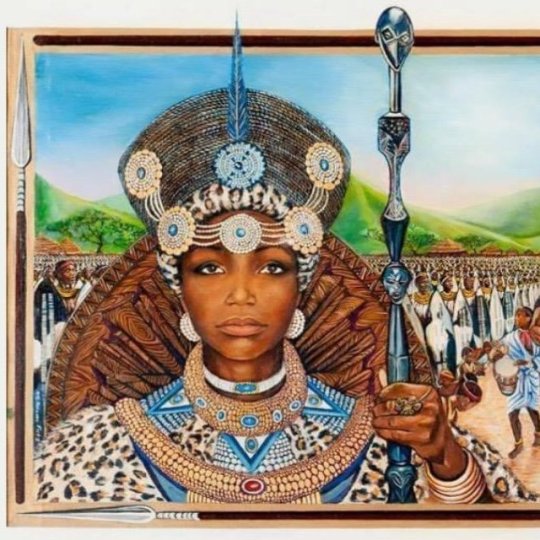
View On WordPress
#daughter of Bhebhe#King of the Zulus#Mother of Shaka Zulu#Queen Nandi KaBhebhe#South African history#Zulu History#Zulu Kingdom
1 note
·
View note
Text
The Cold War phases of the Angolan, Namibian, and Mozambican Civil Wars are all unified with the term South African Border War:
One must keep in mind that in Angola, Mozambique, and Namibia the Cold War parts of the wars each fought were all in the eyes of contemporaries one war, now called as a unified term the South African Border War. These were the biggest African wars of the Cold War, fought by the Apartheid regime to strengthen white supremacy, and fought by the USSR via Cubans to weaken it. The Apartheid regime lost, and lost decisively against the Cubans at Cuito Cavanale, which was one of the first steps leading to the ultimate dismantling of Apartheid and to the slow realization that in Angola and Mozambique and Namibia that the wars that started during the Cold War did not automatically end when the Cold War did.
#lightdancer comments on history#black history month#african history#military history#cuban history#south african history#south african border war
0 notes
Text
Hardly anybody remembered that General Viljoen – the patriot, war hero and darling of scores of Afrikaners – even had a twin brother.

"Humankind: A Hopeful History" - Rutger Bregman
#book quotes#humankind#rutger bregman#nonfiction#constad viljoen#abraham viljoen#general viljoen#afrikaner#south african history#south africa#patriot#war hero#twins
0 notes